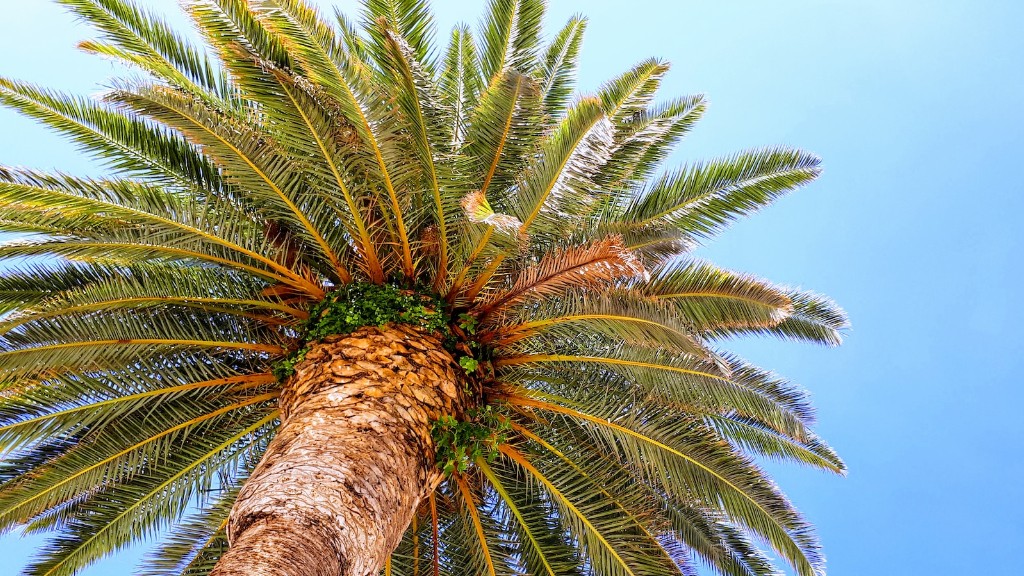Black aphids on a lemon tree are an unwelcome sight. The small, black pests suck the sap of the tree and can cause stunted, distorted growth, yellowing leaves, and even the death of the tree. To get rid of black aphids, it is important to understand their life cycle and learn effective methods of control. Here is an overview on how to get rid of black aphids on a lemon tree.
Assessment and Identification
The first step in eradicating black aphids from a lemon tree is to identify them. Aphids are pear-shaped, soft-bodied insects that cluster on stems, buds, and new growth of trees and plants. Inspection of the tree should focus on the leaves and stems, as the pests are quite small and will be missed otherwise. Additionally, a magnifying glass may be needed to clearly spot the aphids. Once the pests have been identified, it is important to assess the intensity of the infestation. If the pest problem is small and localized, a manual solution may be enough, like removing the affected leaves or simply introducing natural predators. In contrast, if the infestation is widespread, a stronger solution may be needed.
Remove Affected Leaves
If the infestation is not too severe, the affected leaves can be removed by hand. Simply plucking the leaves that are blackened with aphids is a practical solution. To ensure the pests are not spread over the tree or to other plants, affected leaves should be disposed of and not left on the ground. While this method should solve a small-scale infestation, manual removal is much more labor-intensive and may not work with a large outbreak.
Introduce Natural Predators
Introducing natural predators of black aphids, such as ladybirds, lacewings, and nematodes, is an effective way of getting rid of the pests without the use of chemically-based remedies. However, it is important to avoid attracting predators onto other plants, unless that is part of the control plan. Natural predators are available at many garden centers and are relatively low-cost.
Chemically-Based Treatments
If natural predators are unsuccessful or a more serious infestation is present, a pesticide can be used. There are many insecticides available, including organic options. Organic treatments usually contain natural ingredients such as neem oil, garlic, and pyrethrum. Before applying these treatments, ensure the directions are followed carefully to avoid damaging the tree or harming beneficial insects. Additionally, if an insecticide is to be used, it should be rotated with other treatments to avoid giving the pests a chance to build up resistance.
Chemical Sprays
Chemical sprays are a fast-acting and convenient solution. Sprays are available in various formulations and the homeowner should choose one specific to their pest problem. It is important to read the label carefully and follow the directions on the container. Additionally, the spray should not be used in windy conditions as it may disperse over plants and cause damage.
Physical removal
A more labor-intensive method of eradicating black aphids is physical removal. This involves the use of a water or soap solution to spray the affected trees or plants and loosen the pests. Another option is to blast the plants with a high-pressure hose. This is best done early in the morning or late in the day when the pests are inactive. After the spray treatment, wash away the pests and after about a week repeat the process to ensure all the pests are gone.
Trap Plants
Another practical way to get rid of black aphids is to introduce trap plants. These plants attract the pests and should be placed around the affected tree. The pests will then leave the target tree and move to the trap plants. Once the pests have been eliminated, the trap plants should be disposed of. Trap plants are available at garden centers and are a cost-effective solution.
Insecticides
If manual removal and natural predator strategies fail to get rid of the black aphids, insecticides can be used. Insecticides are available as liquids, sprayable dusts, and granules. When using insecticides, safety precautions should be followed, including protective eyewear and clothing. Again, the instructions on the container should be followed and the insecticide should be recycled following the manufacturer’s instructions.
Systemic Insecticides
Systemic insecticides are convenient and with proper application, should provide long-term control of black aphids on citrus trees. Systemic insecticides are applied to the soil around the tree, and these then travel up the tree and attach to the sap. Thus, when the pests suck the sap, they will also consume the pesticide and die. Systemic insecticides are available as liquid or granular formulations and should be selected according to the specific pest problem.
Encouraging Natural Predators
Encouraging natural predators is important in getting rid of black aphids. Thus, planting flowers and shrubs that produce pollen, nectar, and other food sources will attract beneficial insects into the garden. Additionally, the use of mulch on the soil will create sites for predators to nest. Furthermore, it is better to keep grass cut short and to avoid over-fertilizing the soil.
Sanitation
Sanitizing the land around the lemon tree will reduce chances of a black aphid infestation. This includes removing weeds, fallen leaves, and fallen fruit regularly. Additionally, thinning the branches of the lemon tree to allow good airflow will also reduce chances of an infestation as the aphids require undisturbed sites to build up populations. Pruning is also important to remove any infected parts of the tree.



